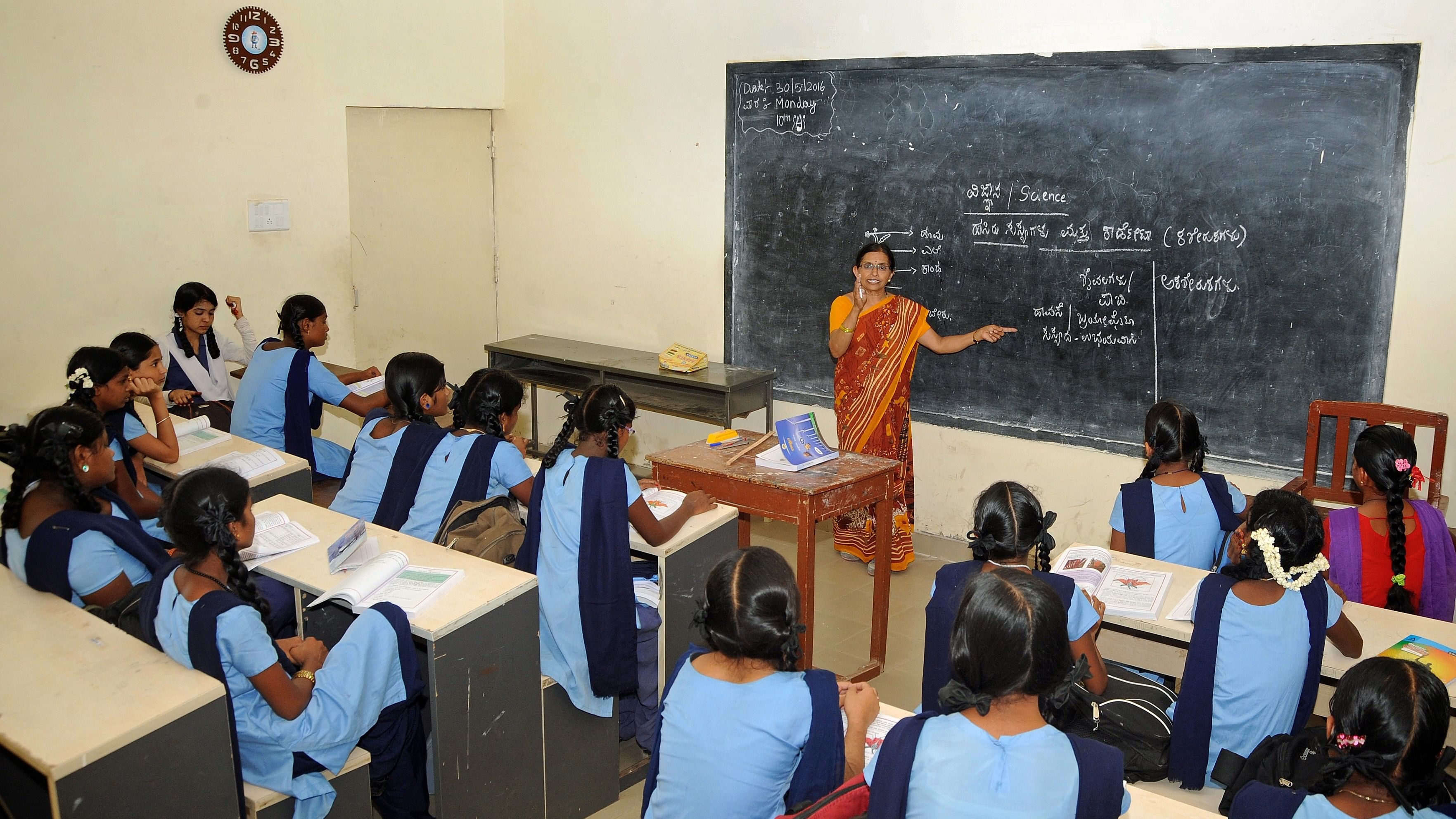
In a landmark 2014 judgement, the Supreme Court struck down Karnataka’s plea to have Kannada as the medium of instruction in elementary education.
Credit: DH Photo
On Rajyotsava, Chief Minister Siddaramaiah said his government would continue efforts to make Kannada the medium of instruction in school education, which appears to be virtually impossible, according to experts.
In his Rajyotsava speech, Siddaramaiah even criticised the judiciary for not supporting the government’s efforts to have children learn in
Kannada.
In a landmark 2014 judgement, the Supreme Court struck down Karnataka’s plea to have Kannada as the medium of instruction in elementary education. This was a two decades-old legal battle. Desperate, the government - then headed by Siddaramaiah - amended the RTE Act mandating Kannada to be the medium, which was sent for Presidential assent.
The government also brought in the Kannada Language Learning Act, 2015, which requires “all schools” to teach Kannada as a compulsory subject - either as first language or second language - from Classes 1 to 10 in a phased manner. This, too, has been challenged by schools.
Officials say there are no ways left. “The Supreme Court has said that choosing the medium of instruction is the fundamental right of the parents,” an official said, pointing out that this was a judgement by a Constitutional bench.
Interestingly, the state government itself ended up introducing English as the medium in government schools. “At Karnataka Public Schools (KPS), we are offering English as the medium. Because there was demand, more English-medium KPS were started,” the official said.
With KPS - the government’s flagship public education model - offering bilingual education, in Kannada and English, the government has morally lost the right to fight for Kannada as the medium, the official rued.
In 1981, a committee headed by Dr V K Gokak recommended Kannada as the medium of instruction, following which the government issued an order that got challenged in court. In 1993, it looked as if the issue was settled when a Supreme Court bench of then Chief Justice M N Venkatachaliah and Justice S Mohan upheld the order.
In 1994, the government introduced a language policy that insisted schools provide education in Kannada or mother tongue. This was struck down by the High Court in 2008. The government moved the Supreme Court, which delivered the verdict in 2014 when Siddaramaiah was the CM.
“The CM’s comment is clearly a contempt of court,” D Shashi Kumar, general secretary, Associated Managements of Primary and Secondary Schools in Karnataka, said.
Senior advocate G R Mohan, who fought the language policy case on behalf of private schools, said there is no provision for the government to insist on Kannada.
But former Advocate General Ravivarma Kumar believes that it is not a dead-end.
“There are ways in the Constitutional bench judgement. The government can make a new law using those ways and by also referring to previous judgments, especially the one by then Chief Justice M N Venkatachaliah and Justice S Mohan, which upheld the government’s decision on language policy,” he said.
The situation is similar when it comes to higher education. The government’s attempt to make Kannada a compulsory subject in undergraduate and postgraduate courses was challenged by private colleges although it was done as part of the National Education Policy (NEP) that bats for regional languages. This was stayed by
the court.